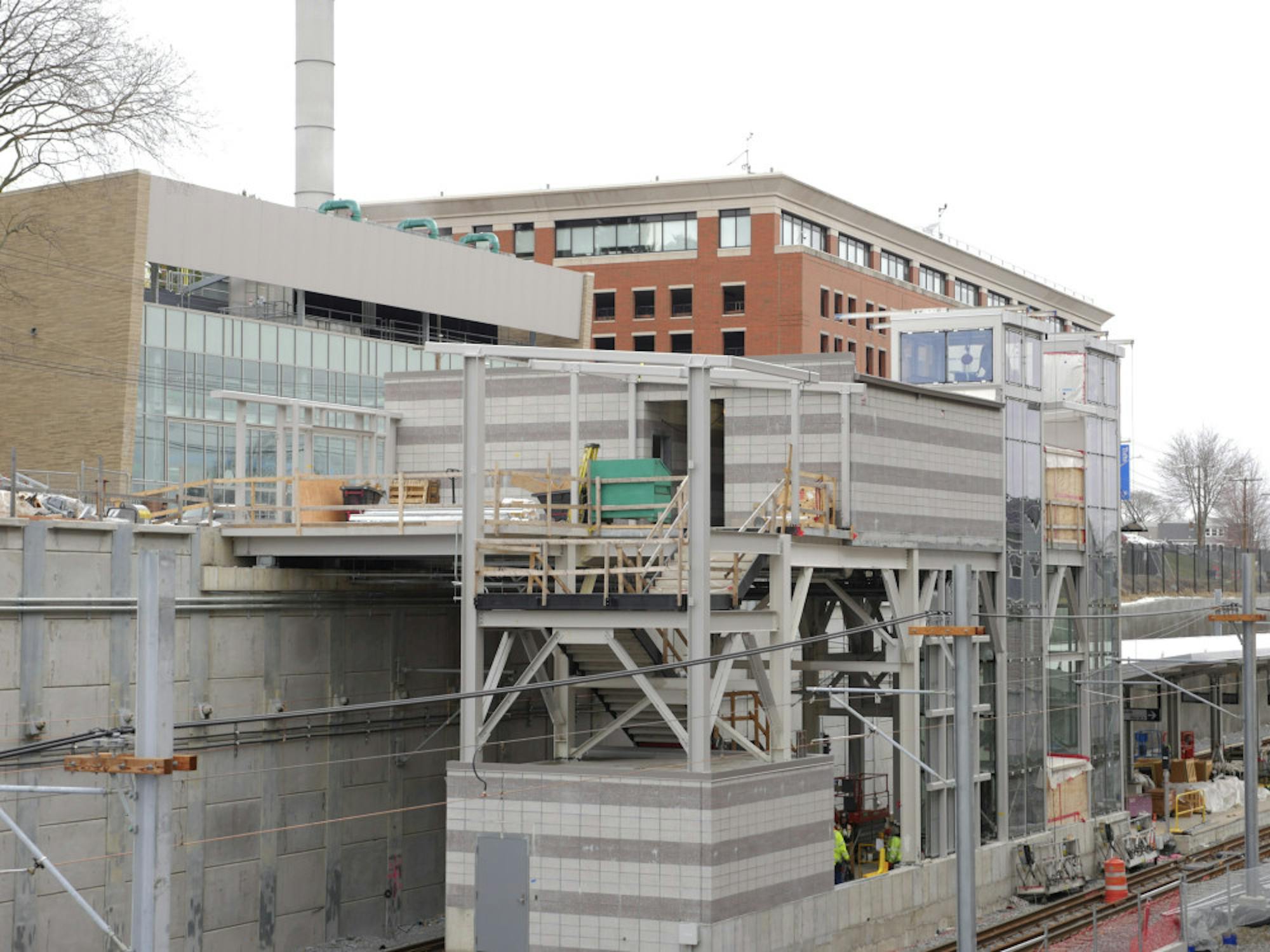The MBTA Green Line Extension officially began service with the opening of its Union Square Branch on March 21, 2022. The addition extends the Green Line’s service from Lechmere station to the new Union Square station in Somerville. The Medford branch of the GLX, which will terminate at the Medford/Tufts station currently under construction next to the Joyce Cummings Center, is slated to open in summer 2022.
The GLX project has been in the works since 1990 and will offer greater access to public transportation for areas in Medford and Somerville where MBTA light rail service was previously unavailable. However, the real estate and commercial development that accompanies the extension may worsen the housing inaccessibility issues that the area currently faces.
Many community organizers and state and local representatives have been outspoken about the complexity of the issues that the GLX introduces. The new transit infrastructure has prompted a wave of speculation by property developers, causing rent prices and eviction rates to increase dramatically.
“Having mass transit as a public good is important for the city,” Nicole Eigbrett, director of community organizing at the Community Action Agency of Somerville told the Daily. “It just also happens to be a double-edged sword when that also means that in today’s housing market, public transit is also an amenity that greed-driven property developers and landlords can use as an excuse to jack up rent.”
The opening of the transit extension at Union Square is just one of the many changes coming to that area of Somerville, which Councilor-at-Large Willie Burnley Jr. says will look “dramatically different” in the next few years.
“The benefit of that for the city is that it will receive a lot more commercial property tax, which will allow us to shift our balance from relying so much on residential taxes, … which should give us more money to fund a lot of the initiatives we care about, including affordable housing,” Burnley Jr. told the Daily.
But the costs of gentrification may outweigh the benefits. The rising property values and rent increases coincide with the end of Somerville’s COVID-19 eviction moratorium, leaving many tenants in a precarious position.
The Community Action Agency of Somerville held a bilingual press conference called “Don’t Let the Green Line Become the Gentrification Line!” on March 21, just before the official opening of the GLX at Union Square, where tenants and organizers shared their personal experiences with gentrification. One community member spoke about how a property developer is renovating her building into luxury apartments, with plans to increase the rent to three times the current cost.
City Councilor Ben Ewen-Campen spoke about how Massachusetts’ lack of rent control has contributed to rising housing costs due to the GLX.
“Because Massachusetts outlaws rent control and Massachusetts outlaws a lot of powerful tenant protections, it has meant that … as it’s become more and more certain that the Green Line [Extension] is going to open, there has been a really, really dramatic increase in rents and home prices that has pushed out long-term tenants,”Ewen-Campen told the Daily.
However, there are a number of local and state-wide initiatives in the works to keep rents at a manageable level and to protect tenants. In 2019, Somervilleoverhauled its zoning code to allow for the development of high-rise buildings near the GLX, a move which Ewen-Campen described as a “huge step forward” for affordable housing. Burnley Jr. also noted the importance of continuing to build and designate affordable housing.
“I think we need to be working with the Somerville Community Land Trust to make sure that they have the resources they need to build housing that is quasi-public, essentially, that’s not based in a private interest of wanting to make as much money as you possibly can,” Burnley Jr. said. “That can be used as essentially displacement housing for folks that are being pushed out but want to stay in the community.”
Burnley Jr. also emphasized the value of community and legislative work that educates tenants on their rights and responsibilities.
“One of the most difficult issues here is that a lot of tenants don’t know their rights,” he said. “They don’t know when a landlord is allowed to do certain things, and they don’t feel comfortable, necessarily, speaking out if they think something is wrong.”
Burnley Jr. said that he is working on a bill which requires that tenants receive information about their rights upon signing a lease. Eigbrett’s work at the Community Action Agency of Somerville focuses on a similar goal, with an emphasis on organizing.
“My program … does our housing justice work in Somerville by educating and empowering renters about their rights and working with residents to collectively organize for change,” Eigbrett said. “We are working with several properties and apartment buildings in Somerville and the residents within them to organize together as a tenant union and then to… negotiate for lower rent and affordable leases.”
Eigbrett also remarked on the role that Tufts students can take in working toward more equitable housing opportunities in Somerville.
“I really want to encourage Tufts students or any college students near Somerville to recognize that they actually are part of the fabric of the community, whether or not they realize it,” she said. “I’d like to remind Tufts students that we are all neighbors, and if we share these values, there are opportunities to collectively come together and make a difference.”
Correction: This article was initially published with the headline "Somerville tenants at risk of displacement by GLX," which incorrectly blames rising rents solely on a transit project. The Daily regrets this error.






